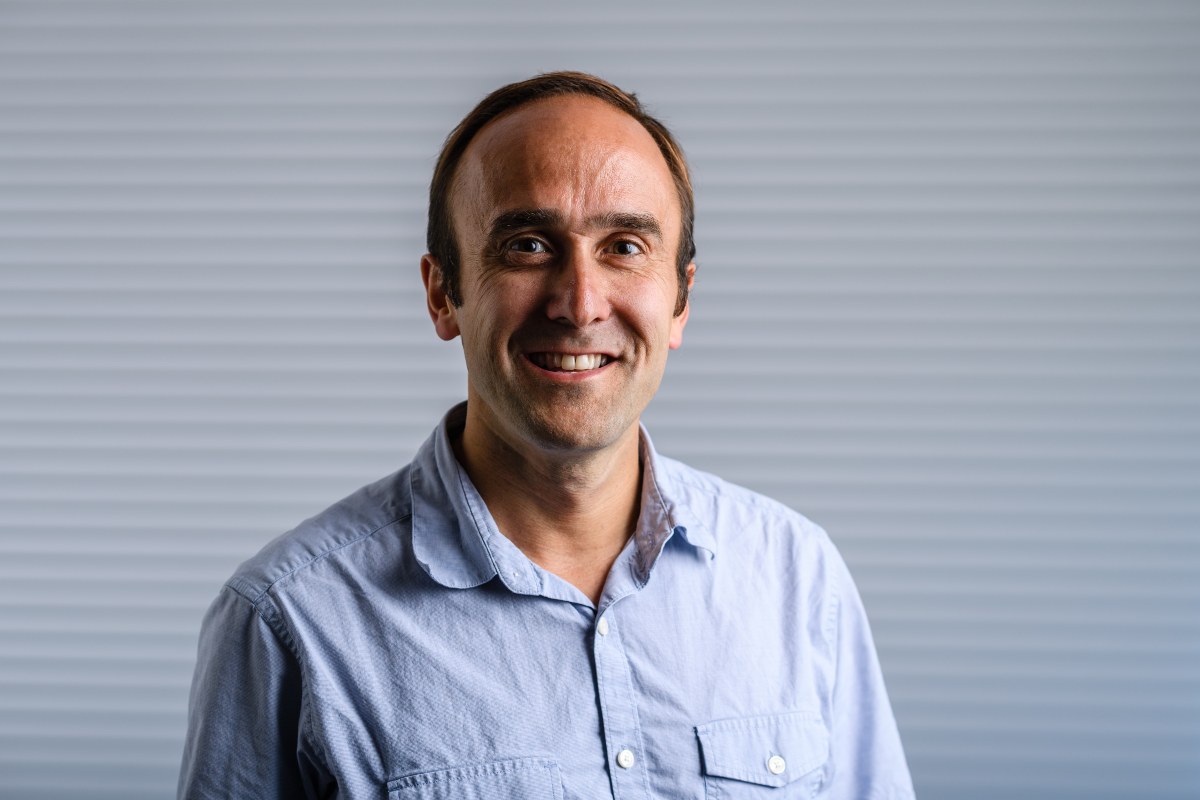
Andrew Scholte, Faculty of Science alumnus, is supporting the next generation of scientists. Photo credit: David Parnes Photography
It was during his PhD at the University of Alberta’s Department of Chemistry when Andrew Scholte realized the importance of learning to explain your research. And while it may sound intuitive, the skills of communicating one’s science across disciplines and to many different audiences has been a fundamental building block in Scholte’s career as a scientist—beginning with his experience in graduate school.
“During my experience in graduate school, I was fortunate to attend a few conferences and give presentations,” said Scholte, who completed his PhD studies under the supervision of Professor John Vederas.
Inspired, Scholte and some of his fellow graduate students started the Banff Symposium on Organic Chemistry. The group raised $50,000 to host the conference in 2003, and it has run biannually since.
“Conferences are important because they provide a casual atmosphere where you can meet other scientists,” said Scholte. “You can share ideas and reinvigorate your research with questions that you hadn’t thought of before. It’s important to get out of the lab.”
Following the completion of his PhD, Scholte received a fellowship from the Natural Sciences and Engineering Research Council of Canada (NSERC) that supported him in pursuing a postdoctoral fellowship at Boston College. A hotbed of activity for pharmacy and pharmaceutical sciences, Scholte has remained in the Boston-area for the last 12 years as a principal scientist with biopharmaceutical company Sanofi. Here, Scholte works across disciplines, collaborating with other scientists in the fields of chemistry, biology, and immunology, for drug discovery.
“As a chemist, my main role is to work in project teams where we design new drug molecules for diseases such as multiple sclerosis (MS), cancer, and other rare diseases,” he explained. “Our work is very early on in the drug-discovery process, designing single molecules that may eventually be turned into new treatment options.”
Fundamental to this interdisciplinary work is science communication, Scholte explained. And it is this through-line that has inspired Scholte to make a donation to the Faculty of Science to support graduate students in chemistry who wish to attend academic conferences. His support was matched by his employer, Sanofi, supporting current graduate students in developing these critical skills.
“Having the skills to communicate your research effectively, and demonstrating the problems that you’ve solved along the way is really important to your career growth,” said Scholte. “Those skills are essential for scientists to be successful in either academic or industrial settings, and it is fundamental that we are able to explain our science not only to our colleagues, but to the public.”
When asked for any advice Scholte would share with current graduate students, he explains that he is a big advocate of asking questions.
“Never be afraid to ask questions,” he explained. “As scientists, we are learning new things every day, and it is important to be curious—about what’s happening in your lab and what’s happening elsewhere in academia and in industry. Be curious, ask questions, and don’t be afraid of failure.”
Are you interested in supporting student life? Contribute to an established scholarship or consider establishing your own to help undergraduate or graduate students with the rising costs of receiving a university education. Give now.